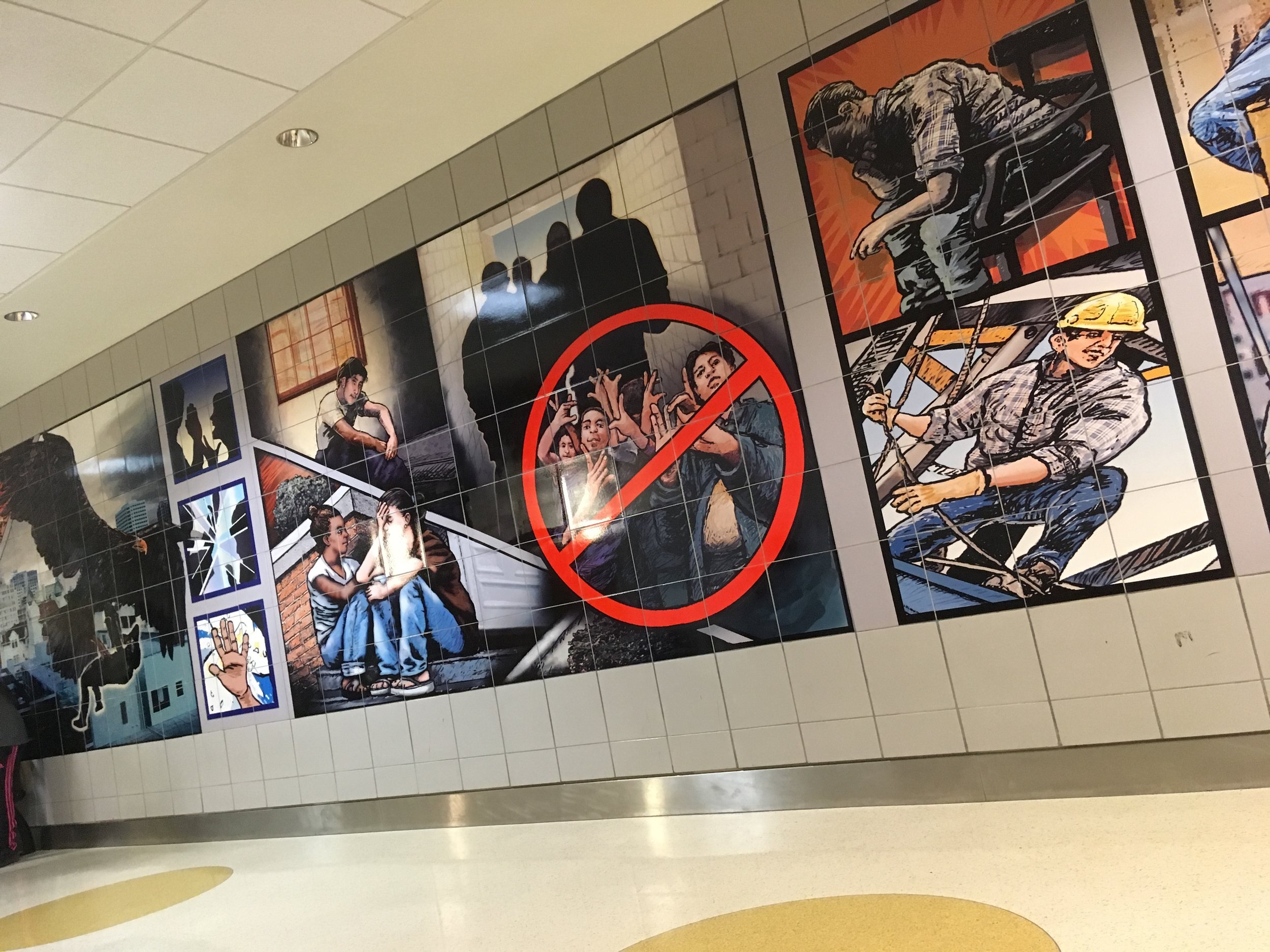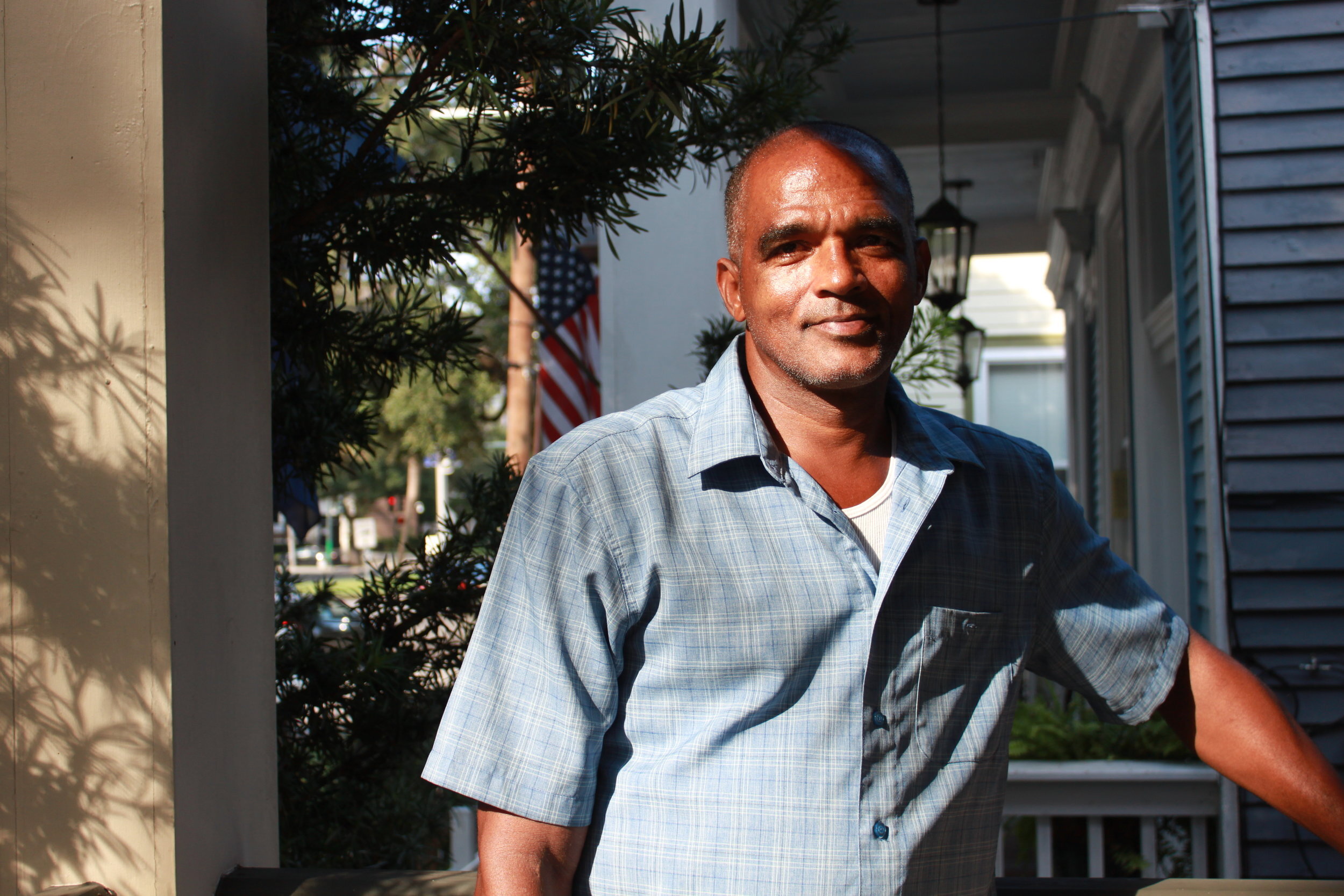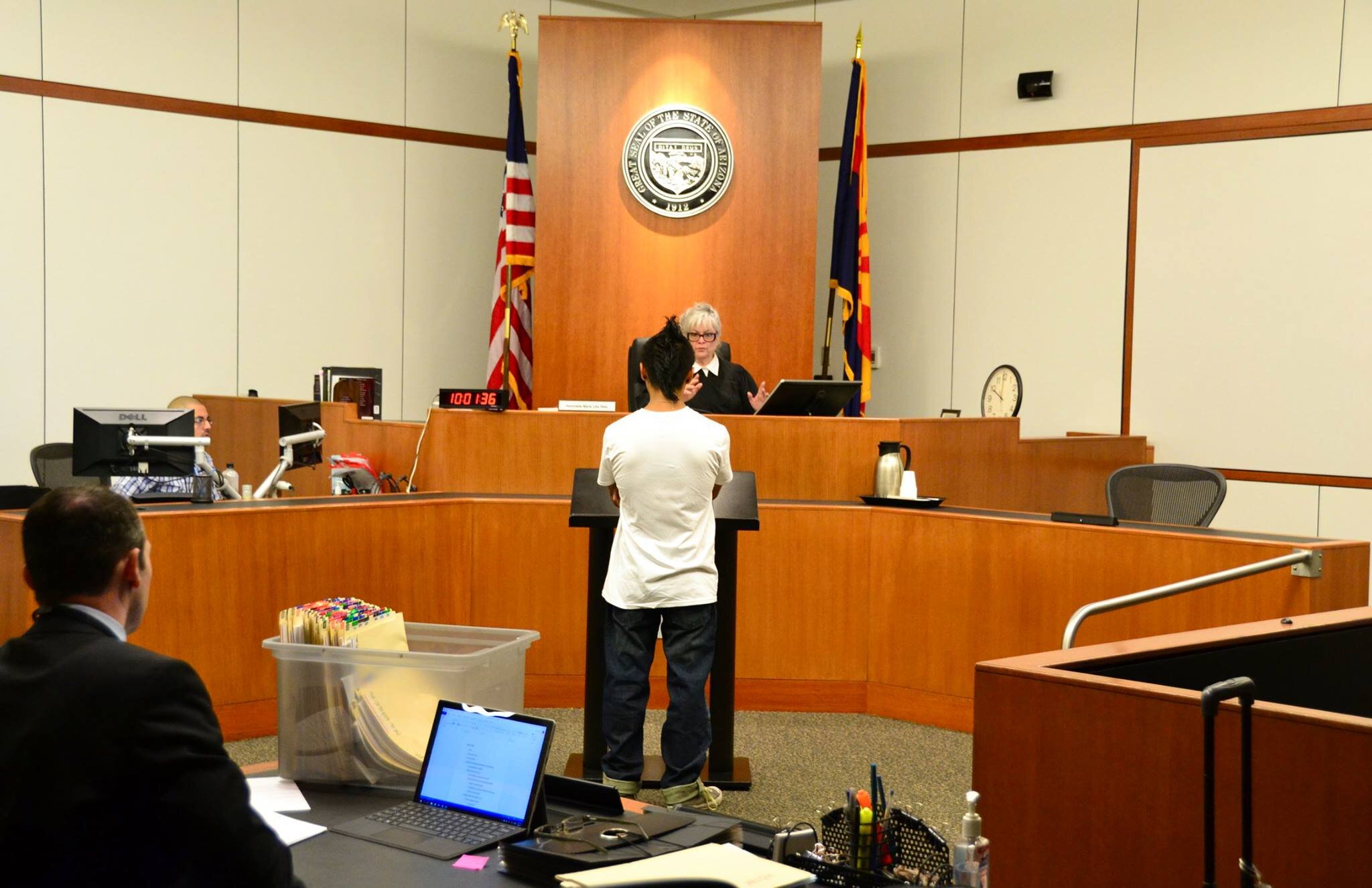
SEASOn 1
SEASON 1, EPISODE 10
ARE SOME OF THE FORMERLY INCARCERATED OWED REPARATIONS?
Hallway at the Hayward Juvenile Assessment Center in California. Photo: Liza Veale.
10.29.18
To close out season one, we invited two legal experts, Christina Swarns, President and Attorney-in-Charge of the Office of the Appellate Defender in New York and Scott Hechinger, Senior Staff Attorney & Dir. of Policy at the Brooklyn Defender Services, to look at what it would mean for the United States to provide financial reparations for individuals who have spent most of their lives behind bars. Moderated by 70 Million’s creator and executive producer, Juleyka Lantigua, the discussion considers current and plausible pathways to bring reparations, restitution, and other types of restorative justice to the formerly incarcerated.
SEASON 1, EPISODE 9
HOW NEW ORLEANS COULD SET A NEW COURSE FOR BAIL REFORM
Adrian Caliste, lead plaintiff in Caliste v. Cantrell in New Orleans. Photo: Sonia Paul.
10.22.18
Reporter: Sonia Paul.
New Orleans could become the battleground for bail reform. The city has one of the highest per capita incarceration rates in the world. And most people are there because they can’t pay their bail. The current arrangement with the local bail industry gives the impression that judges there could have a financial conflict of interest when setting bail. In this episode, Sonia Paul digs into how an ongoing lawsuit, pretrial consequences of bail, and poverty, bias, and algorithms come into play.
SEASON 1, EPISODE 8
IN MIAMI, JAILING FEWER, TREATING MORE
Justin Volpe, peer specialist at the Criminal Mental Health Project, delivers medication to program participants in Miami. Photo Credit: Daniel Rivero.
10.15.18
Reporters: WLRN’s Nadege Green and Daniel Rivero.
Like in much of the country, jails in Miami-Dade County double as de facto mental health facilities for people with mental health issues cycling through the criminal justice system. But Miami-Dade’s Criminal Mental Health Project has taken the lead in addressing the needs of this population. Now it is a national model for how to tackle the interplay between mental illness and criminal justice, while driving down recidivism and jailing rates in the process. This episode is a special collaboration with Miami’s WLRN radio station, whose reporters Nadege Green and Daniel Rivero meet the judge who started the program and see how counselors, peer specialists, and officers are focusing on treatment and services rather than arrests.
SEASON 1, EPISODE 7
UNDOCUMENTED IMMIGRANTS ARE TETHERED TO ICE, AND PRIVATE COMPANIES, BY ANKLE MONITORS
Floricel Liborio Ramos in Northern California.
10.08.18.
Reporter: Ryan Katz.
A handful of companies are making millions off ankle monitors strapped to undocumented immigrants in ICE custody. The makers pitch the monitors as an alternative to being jailed, but are they simply another form of bondage? Reporter Ryan Katz looks at what life is life while wearing one of these monitors. He untangles the complicated web of ICE, immigration bail agent companies, and the attorneys fighting them.
SEASON 1, EPISODE 6
IN ONE STATE, AN OPIOID CRISIS LED POLICE TO START AN ANGEL PROGRAM
Tito Rodriguez, a Care Advocate for PAARI, the Police Assisted Addiction Recovery Initiative. Photo Credit: Maria Murriel.
10.01.18
Reporter: Maria Murriel.
In Massachusetts, Gloucester PD started an "angel program" to help people in the grip of opioid addiction get help. Instead of arresting people for opioid-related crimes, police directed them to treatment programs and resources. The angel program eventually grew into PAARI, the Police Assisted Addiction and Recovery Initiative. It’s now a national program. Reporter Maria Murriel visits the original program to see how it all works.
SEASON 1, EPISODE 5
ONE STATE IS DISRUPTING THE PIPELINE FROM FOSTER CARE TO JAIL
Will Clark on his balcony in his home. He’s been living with his resource family, the Huson’s, for the past year. Photo credit: Liza Veale.
09.24.18
Reporter: Liza Veale.
By age 17, over half of young people in foster care have already been convicted of a crime or spent a night in jail. After they age out, a quarter will go to jail or get in trouble with the law within the first two years. California is determined to keep foster youth out of jail. Reporter Liza Veale profiles two young people who are making their way out of the system, and talks with policy makers and social service workers trying to redirect the foster-care-to-prison pipeline.
SEASON 1, EPISODE 4
PUTTING WOMEN ALREADY IN JAIL FIRST
Client Advocate Catherine O’Neill (left) of Still She Rises with her client Linda Meachum. Photo credit: Nissa Rhee.
9.17.18
Reporter: Nissa Rhee
Oklahoma locks up women and girls at a higher rate than anywhere else in the US. Black mothers bear the burden of this crisis, which can curtail accessing public benefits and lower the chances of keeping their children. But a promising new public defender's office in Tulsa have found a way to change some women’s fates. Reporter Nissa Rhee goes inside a women’s jail for our story.
SEASON 1, EPISODE 3
REFORM ACTIVISTS AND A NEW D.A. FIND COMMON GROUND
A bail bonds agency welcomes business next door to the Harris County District Attorney’s Office. A federal judge recently ruled the county’s bail practices unconstitutional. Photo credi: Ruxandra Guidi.
09.10.18
Reporter: Ruxandra Guidi.
Activists in Houston were galvanized by events in Ferguson in 2014 following the death of Michael Brown. First, they took to the streets in protest. Then they started organizing. Not long after, they found a kindred spirit in the most unlikely person: a candidate for the DA office. Reporter Ruxandra Guidi chronicles how activists and reformers are succeeding in cutting the jail population, diverting drug arrests, and increasing accountability for local police.
SEASON 1, EPISODE 2
VETERANS COURTS GIVE SOLDIERS A WAY BACK
Sharalis Canales, Outreach Specialist at the Boston Veterans Court. Photo credit: Heidi Shin.
09.03.18
Reporter: Heidi Shin.
For veterans, run-ins with the law don’t always have to mean jail time. Thanks to Veterans Court in Boston, which helps in finding treatment for PTSD, getting sober, and finding work. Reporter Heidi Shin talks to an Iraq and Afghanistan vet about his struggles with alcohol and PTSD, and his experience through the Veterans Court program. Heidi also talks to the judges, outreach specialists, and counselors about diverting veterans away from the prison pipeline.
Heidi Shin would like to give special thanks to Professor Ronald Kessler at Harvard Medical School, Elana Newman at the Dart Center for Journalism and Trauma, Scott Swaim and Chris Deutsch at Justice for Vets, and Judge Eleanor Sinnott and the Boston Veterans Court Team.
SEASON 1, EPISODE 1
LOCALS DIVIDED BETWEEN DIVERSION AND BORDER SECURITY
Photo: Pima County Safety & Justice
08.27.18
Reporter: Jesse Alejandro Cottrell.
In Pima County, where Tucson is located, formerly incarcerated individuals and local government officials have joined efforts to send fewer people to jail. Meanwhile, a federal program designed to stop drug and human trafficking at the border is also sending people to jail for months over traffic violations and minor drug offenses. Reporter Jesse Alejandro Cottrell explores just how complicated it can be to reform a local criminal justice system.










